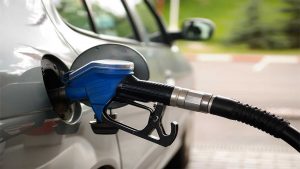After decades of an opaque, flawed and corruption-laden petrol subsidy regime, a new pump price band advised by the Petroleum Products Pricing Regulatory Agency (PPPRA) that will see petrol price move from N123.50 to between N140.80 and N143.80 per litre this July, is being seen as Nigeria finally signalling its willingness to allow the market determine how much petrol is sold in the country.
The PPPRA released the new price band recommendation effective immediately Wednesday. Although the Nigerian government appears to still ‘fix’ the price of the product, it is within a band and based on prevailing market and operating conditions of petroleum products marketers.
Uche Uwaleke, a professor of finance and capital markets at Nassarawa State University, in a reaction note on the development sent to Business A.M. said the decision reflected government’s desire to gradually exit the fuel subsidy regime.
A number of sound bites have come from different government officials in last few months, including Zainab Ahmed, finance minister; Timipre Sylva, minister of state, petroleum resources, and Mele Kyari, group managing director, Nigeran National Petroleum Corporation (NNPC), announcing the death of subsidy forever. But in a country where governments are known to crumble under political pressure and lack of political will to carry through certain plans, it had been thought government would not sustain the rhetoric.
Analysts have suggested over several years that it was the right thing to do. Now, nearing economic and financial apocalypse, the Nigerian government has found itself between the devil and the deep blue sea, and is forced to see the death of subsidy as the only option.
Uwaleke said this is particularly so in view of plummeting government revenue and the pressure on government finances occasioned by COVID’19.
“Fortunately for the Nigerian economy, which is substantially powered by the oil sector, the OPEC+ production-cut agreement is yielding positive result, helping oil price recovery. However, this translates to higher cost of petroleum products imports. So, until we develop the capability to refine enough crude oil for domestic consumption, the pump price of PMS will continue to be exogenously determined. This is the sad reality,” Uwaleke explained.
He said that with the lifting of the ban on inter-state travel as part of measures to restart the economy, Nigeria cannot afford any round of fuel scarcity and the attendant costs to the economy, adding that In due course, especially post COVID’19, he expects government to fully deregulate the downstream sector, paving way for private investments and generating a competitive environment that will drive down petroleum products prices ultimately.
“Only then, will the hand of the PPPRA become less visible,” he said.










